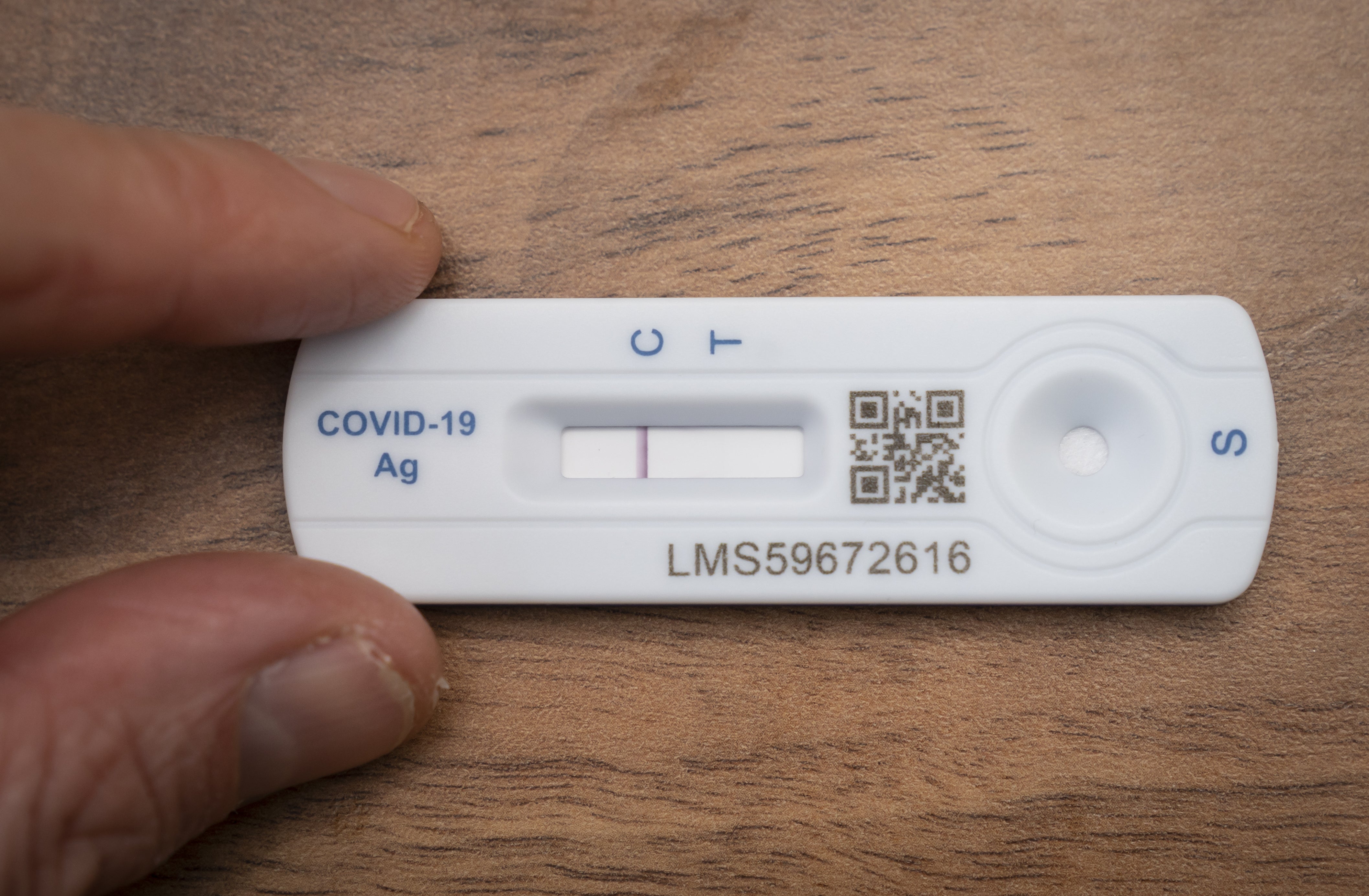Covid-19: UK infections are up but does it matter?
The rate of admissions to intensive care units (ICU) in England for those with Covid has risen for the second week in a row.

Your support helps us to tell the story
From reproductive rights to climate change to Big Tech, The Independent is on the ground when the story is developing. Whether it's investigating the financials of Elon Musk's pro-Trump PAC or producing our latest documentary, 'The A Word', which shines a light on the American women fighting for reproductive rights, we know how important it is to parse out the facts from the messaging.
At such a critical moment in US history, we need reporters on the ground. Your donation allows us to keep sending journalists to speak to both sides of the story.
The Independent is trusted by Americans across the entire political spectrum. And unlike many other quality news outlets, we choose not to lock Americans out of our reporting and analysis with paywalls. We believe quality journalism should be available to everyone, paid for by those who can afford it.
Your support makes all the difference.Covid infections continue to rise across the UK, with one in 25 people in England, one in 20 in Wales and one in 17 in Scotland infected with the virus.What does the latest data say?
Covid-19 infections continue to rise across the UK, driven by the Omicron BA.4 and BA.5 subvariants.
Figures from the Office for National Statistics (ONS) show that 2.7 million people in private households are estimated to have had Covid-19 last week, up 18% from 2.3 million the previous week.
This is the highest estimate for total infections since late April, but is still below the record high of 4.9 million which was reached during the Omicron BA.2 wave at the end of March.
Meanwhile, the number of people in hospital in England who have tested positive for Covid-19 stood at 12,283 on July 8, up 31% week-on-week and close to the peak reached during the BA.2 wave.
The majority of people in hospital who test positive for Covid-19 are being primarily treated for something else rather than the virus.
However, those with Covid symptoms serious enough to require mechanical ventilator beds stood at 228 on July 8, the highest number for two months, although much lower than early pandemic peaks.
Does it matter?Some experts argue that as long as death rates remain low and intensive care beds are not filling up at an alarming rate, then allowing the infection to spread enables the pandemic to run its course in a heavily vaccinated population.
They argue that bringing back masks and other restrictions only serves to push the problem further down the road.
However, others are worried about the increasing number of NHS hospital admissions, the impact on health and care staff, and the risk of serious illness in the immunosuppressed.
Leading statistician Dr David Spiegelhalter said on Friday that hospital admissions were “rising steeping and they are nearly at the level of previous peaks this year”.
But he added: “I think there are some indications that they may be topping off.”
According to the World Health Organisation (WHO) this week, Europe is at the centre of the resurgence in Covid-19 infections as more people mix at large-scale events and travel.
Is any action being taken?
Some NHS hospitals have brought back mask policies as they deal with a resurgence in cases.
Although the move is not legally enforceable, the trusts say there is a need to protect staff and patients from falling ill. More trusts are expected to follow suit.
This matters because staff absences have a knock-on effect on NHS services, leading to the cancellation of operations and creating longer waiting lists. And there is a desire to protect patients already in hospital from getting more sick.
What might winter look like?
Around one in six people aged 75 and over in England (16%) have not received any doses of Covid-19 vaccine in the past six months, putting them more at risk of severe disease. This could lead to increasing pressure on hospitals in the coming months.
As we go into autumn, those aged 65 and over will be offered a booster jab alongside frontline health and social care workers, though there is a suggestion everyone over 50 may be included in the programme.
Dr Mary Ramsay, director of clinical programmes at the UK Health Security Agency (UKHSA), said on Thursday: “We continue to see Covid-19 case rates and hospitalisations rise in all age groups, with the largest increases in hospitalisations and ICU admissions in those aged 75 and older.”
There is likely to be a substantial amount of waning immunity in older people who have not taken up their spring booster on schedule.
A new campaign encouraging people to have their autumn jabs should provide a boost to immunity.